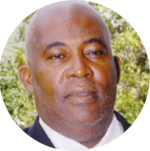
I listened attentively to the Hon. Minister of Tourism, Ernest Hilaire, as he presented the Tourism Bill in the lower House of Parliament on Tuesday, 20th February, much to my delight, and, indeed the delight of scores of St. Lucians.
Tourism is the island’s biggest industry and main source of jobs, income and foreign exchange which accounts for about 65% of our Gross Domestic Product (GDP).
Now it is important for readers to understand the importance of tourism to our country.
Tourism today creates thousands of jobs, develops the infrastructure of our country and facilitates cultural exchanges between foreigners and citizens.
Tourism can foster local and community-based tourism by creating jobs and generating income for local businesses. This can lead to a more sustainable and resilient local economy and provide a stable source of revenue throughout the year.
Having recognized the importance of the Tourism industry to St. Lucia, the minister sought to transform the industry so that it can adapt to changing tourism dynamics.
The physical environment came under scrutiny.
The minister thought that the physical environment must be beautified and be made aesthetically captivating.
Now in keeping with the motto of St. Lucia, the next focus was on the people. He insisted in his presentation, that there must be inclusivity in the industry, meaning that tourism should be for everyone. That idea is certainly in keeping with the mantra: Putting People First.
That concept is interpreted to mean that locals must take ownership of the industry. And be culturally rooted and resilient in a sustainable tourism industry.
Now taking ownership means that persons in the industry must take initiatives and responsibility for growing their businesses and to make a success of them. They must be willing to step up and make things happen instead of waiting to blame others for their mistakes or challenges.
Another very important focus will be on upgrading standards. Indeed, in all strategic planning, there should be a set of standards by which an individual, business or organizations should allow for constant evaluation.
There will be an upgrade in the standards for the tourism industry which would lead to certification as long as the standards are met.
Indeed, to be certified would require business owners to demonstrate good business practices, a sustainable business development environment, and a good marketing image. Business people should be able to influence people’s opinion about their business so that they would want to buy their products. Similarly, business people should be able to ‘keep their ears to the ground’ so that they could counter any negativity that relates to their businesses. They should know what people are saying, positive or negative, about their businesses.
The Tourism Development Bill will demand good business practices. Like Education, Tourism requires the adoption of best practices. The following are a few best practices:
- Engage Employees. Good business managers often try to engage with employees by helping them create achievable goals; Motivated employees may create better plans, solutions and ideas when working as a team.
- Reward achievements. Another best practice in business management is rewarding employees for their efforts. This can help motivate them to continue trying to improve company goals and creating a better workplace.
- Emphasize quality. Emphasizing quality can help improve productivity expectations for the business.
Now space does not allow me to list several other best practices in tourism. Indeed, many businesses are aware of those practices, however implementing those would require effort and determination on the part of management.
The Tourism Development Bill seeks to encourage participation and collaboration of social partners and create linkages with the tourism or touristic environment.
The bill also places a very serious responsibility on the Ministry of Tourism and related agencies, to keep the populace informed or abreast with matters relating to tourism
Now, effective communication is a leadership requirement. And it is my hope that that critical requirement would help propel the economic development of St. Lucia.
Indeed, it is my understanding that levies and taxes from the tourist industry to the Government of St. Lucia are paid very late. The Tourism Development Bill will ensure that the collection of tourism levies and taxes are paid on time.
Now both intrinsic and extrinsic motivation play a critical role in the output of individuals, groups and organizations. I am aware that the Ministry of Tourism and the Tourism Board have organized an annual tourism awards. However, the Tourism Development will ensure that rewards and recognition are given to individuals, groups and organizations for making St. Lucia a prime tourism destination.
The Government of St. Lucia would be standing by to assist stake-holders in the industry in cases of natural or other forms of disasters.












